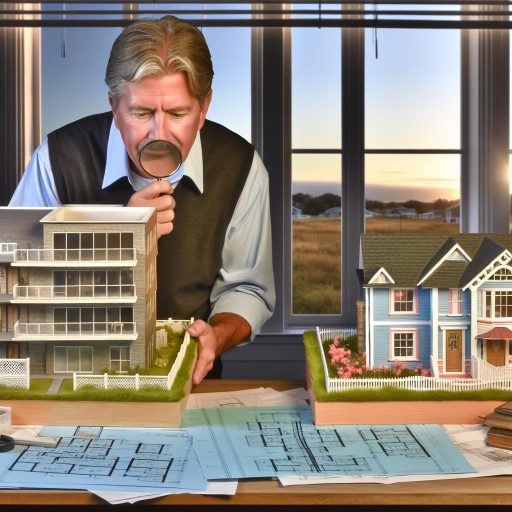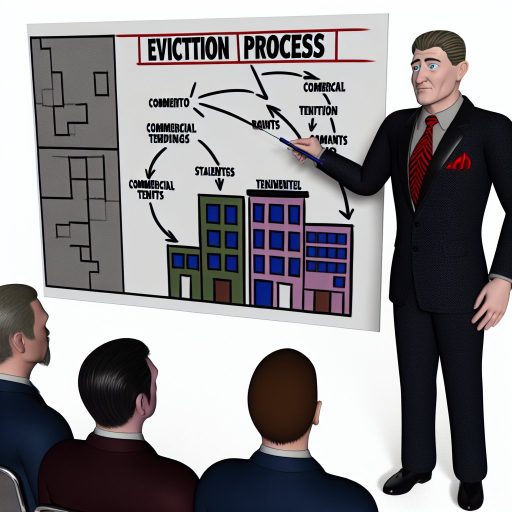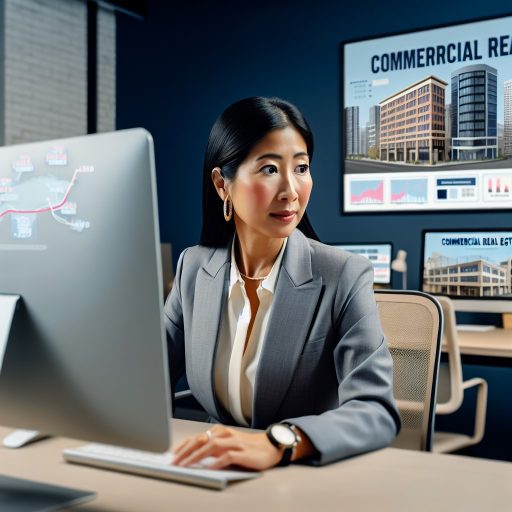Understanding the Importance of Tenant Relationships in Commercial Leasing
Building Trust Leads to Stability
Strong tenant relationships foster trust between landlords and tenants.
Trust leads to stable occupancy and reduced turnover rates.
Furthermore, when tenants feel valued, they are more likely to renew their leases.
Open Communication Enhances Partnerships
Effective communication is essential in commercial leasing.
Landlords should regularly check in with their tenants.
This practice creates an atmosphere of transparency and collaboration.
Moreover, tenants appreciate when their concerns are addressed promptly.
Understanding Tenant Needs Drives Satisfaction
Each tenant has unique business needs and goals.
Landlords should take time to understand these requirements.
When landlords align support with tenant objectives, satisfaction increases.
Consequently, satisfied tenants often become long-term partners.
Regular Updates Foster Engagement
Keeping tenants informed about property updates is crucial.
Regular newsletters or meetings keep everyone on the same page.
These interactions can also offer tips for maximizing their space.
Ultimately, engaged tenants become more invested in the property.
Community Building Encourages Loyalty
Creating a sense of community among tenants significantly enhances relationships.
Organizing networking events fosters connections among tenants.
Additionally, community-building initiatives create loyalty and camaraderie.
These relationships positively impact tenant retention rates.
Handling Issues Gracefully Strengthens Ties
Problems can arise in any leasing situation.
Addressing issues quickly and effectively is vital.
This approach demonstrates a landlord’s commitment to the tenant’s wellbeing.
Furthermore, successful problem-solving enhances the overall reputation of the landlord.
Strategies for Effective Communication with Tenants
Establish Open Lines of Communication
Encourage tenants to voice their concerns openly.
This fosters trust and strengthens relationships.
Utilize multiple channels for communication.
Email, phone, and face-to-face meetings work well.
Promptly respond to tenant inquiries.
This shows that you value their input and time.
Conduct Regular Check-Ins
Schedule routine meetings to discuss lease matters.
This keeps tenants informed and engaged.
Use these opportunities to gather feedback.
Ask about their experience in the space.
Welcome suggestions for improvements.
Provide Timely Updates
Keep tenants informed about property changes.
This includes maintenance schedules and renovations.
Consider sending newsletters for regular updates.
Email notifications can also be effective.
Be transparent about potential disruptions.
Offer Resources and Support
Provide valuable resources for tenants.
Include information on local services and amenities.
Host workshops that benefit tenant businesses.
Encourage networking among tenants.
This builds a sense of community within the property.
Manage Conflicts Proactively
Address tenant issues before they escalate.
Use a calm, solution-oriented approach to conflicts.
Listen to all parties involved thoroughly.
Suggest compromises that work for everyone.
Document agreements to prevent future misunderstandings.
Maintain Professionalism
Always communicate in a respectful and professional manner.
This sets a positive tone for interactions.
Respect tenant privacy and confidentiality.
Be mindful of your language and tone.
This reinforces a mutually respectful relationship.
Creating a Positive Lease Agreement
Key Terms to Include
A well-structured lease agreement protects both parties involved.
First, define the lease term clearly.
The lease term needs to indicate the start and end dates.
Next, specify the rent amount and payment schedule.
Clearly outline any security deposits required.
Additionally, include maintenance responsibilities for both parties.
This ensures clarity regarding upkeep and repairs.
Finally, address renewal and termination conditions in the agreement.
Negotiation Tips
Effective negotiation leads to a beneficial lease agreement.
Begin discussions with an open mindset.
Listen actively to the tenant’s needs and concerns.
Moreover, share your expectations clearly to avoid misunderstandings.
Use data to support your rent pricing during negotiations.
Present comparative market analysis to demonstrate fairness.
When making concessions, evaluate your bottom line carefully.
Keep the lines of communication open throughout the negotiation process.
This builds trust and paves the way for long-term relationships.
Building Trust Through Transparency
Transparency fosters a positive leasing experience.
Clearly state any potential increases in rent or additional costs.
Be upfront about the implications of lease violations.
Always provide clear contact information for tenant inquiries.
Furthermore, deliver updates promptly regarding property changes.
This demonstrates reliability and commitment to the tenant’s satisfaction.
Regular check-ins can also enhance the relationship.
Such efforts can mitigate conflicts before they arise.
Find Out More: Essential Guide To Optimizing Commercial Real Estate Marketing With SEO
The Role of Regular Property Maintenance in Tenant Satisfaction
Importance of Property Maintenance
Property maintenance plays a crucial role in tenant satisfaction.
A well-maintained property enhances the overall experience for tenants.
Regular maintenance prevents minor issues from escalating into major problems.
This proactive approach reduces tenant turnover and increases retention.
Establishing a Maintenance Schedule
Creating a maintenance schedule is essential for effective property management.
A consistent schedule ensures all areas receive attention regularly.
This routine can include inspections, cleanings, and necessary repairs.
Moreover, it helps in budget planning for property expenses.
Tenants appreciate predictability and transparency in maintenance routines.
Responsive Communication
Open lines of communication foster positive tenant relationships.
Responding quickly to maintenance requests shows tenants they are valued.
Effective communication can prevent misunderstandings and dissatisfaction.
Utilizing technology, such as maintenance request apps, streamlines the process.
This approach enhances tenant trust and promotes long-term relationships.
Tenant Education on Maintenance Procedures
Educating tenants about maintenance procedures can be beneficial.
Providing clear guidelines helps tenants understand their responsibilities.
Encouraging them to report issues promptly prevents further damage.
Regular workshops can enhance tenant knowledge about property upkeep.
Informed tenants are more likely to take pride in their living space.
Feedback Mechanisms
Implementing feedback mechanisms can greatly improve maintenance practices.
Surveys and suggestion boxes allow tenants to voice their concerns.
Listening to their feedback demonstrates commitment to their satisfaction.
Additionally, addressing concerns can lead to improved maintenance protocols.
Continuous improvement reinforces tenant confidence in your management.
Long-Term Benefits of Regular Maintenance
Regular property maintenance yields long-term benefits for property owners.
It preserves property value by preventing deterioration over time.
A well-kept property attracts quality tenants willing to pay more.
Moreover, a positive reputation leads to referrals and higher occupancy rates.
Ultimately, happy tenants contribute to a thriving rental community.
Learn More: Common Challenges in Commercial Real Estate Loan Approvals
Building a Sense of Community: Tenant Engagement and Events
Creating Engaging Events
Organizing regular events fosters interaction among tenants.
These events can include networking breakfasts or holiday parties.
Consider hosting educational workshops to enhance knowledge sharing.
Moreover, community-oriented events promote a sense of belonging.
Encouraging Tenant Feedback
Solicit feedback through surveys and suggestion boxes.
This helps gauge tenant satisfaction with events and services.
Furthermore, responding to feedback demonstrates that you value their input.
Engagement can be enhanced when tenants feel heard and appreciated.
Building Digital Connections
Create a tenant portal for announcements and updates.
This platform can facilitate easy communication among tenants.
Additionally, leverage social media for community building.
Sharing news, events, and tenant achievements fosters connectivity.
Partnerships with Local Businesses
Collaborate with local shops and restaurants for events.
These partnerships can offer discounts or sponsorship opportunities.
They not only enhance events but support the local economy.
Moreover, this approach can attract more foot traffic to your property.
Organizing Community Service Initiatives
Engaging tenants in community service enhances camaraderie.
Consider hosting charity drives or clean-up days in the area.
These initiatives promote teamwork and strengthen relationships.
Furthermore, it reflects positively on the property’s image.
Offering Networking Opportunities
Facilitate business networking meetups among tenants.
Encourage collaboration and partnerships through these events.
Organizing industry-specific gatherings can attract like-minded individuals.
Such connections can result in mutually beneficial business relationships.
Gain More Insights: Understanding Economic Trends Affecting Land Development In Commercial Markets
Handling Disputes
Understanding Conflict in Leasing
Conflicts can naturally arise in commercial leasing.
These disputes often stem from misunderstandings or unmet expectations.
Recognizing potential issues early can mitigate them effectively.
Moreover, awareness of common conflicts is crucial for all parties involved.
Active Communication
Maintaining open lines of communication is essential.
Regular check-ins can help address concerns promptly.
Encourage tenants to express their issues without fear.
Additionally, landlords should provide clear guidelines for discussions.
This approach fosters transparency and trust in the relationship.
Utilizing Mediation Techniques
Mediation can be an effective method to resolve disputes.
A neutral third party can help facilitate discussions.
They will guide both sides to understand each perspective.
During mediation, focus on compromise and mutual benefits.
Such techniques often lead to lasting solutions.
Developing Written Agreements
Documenting agreements is vital in commercial leasing.
These documents can reduce ambiguity and clarify expectations.
Ensure all parties review and understand the terms clearly.
Written agreements can serve as references during conflicts.
They provide a clear path for resolving misunderstandings.
Encouraging Problem-Solving Approaches
Fostering a problem-solving environment can ease tensions.
Encourage both parties to look for collaborative solutions.
This can enhance the relationship and create a positive atmosphere.
Promote brainstorming sessions for resolving issues.
Creative solutions often lead to sustainable agreements.
Seeking Legal Assistance When Necessary
Sometimes disputes require legal intervention.
Understanding when to involve legal counsel is important.
Consulting an attorney can clarify rights and obligations.
Legal professionals can also assist in drafting effective agreements.
They provide a layer of protection for both landlords and tenants.
Delve into the Subject: Commercial Real Estate Pay-Per-Click Advertising for Immediate Traffic

Leveraging Technology for Enhanced Tenant Relationship Management
Importance of Technology in Tenant Relations
Technology plays a crucial role in modern tenant relationship management.
It streamlines communication and automates routine tasks.
As a result, property managers can focus on building better relationships.
Moreover, technology enhances transparency and accountability.
Communication Tools
Utilizing communication tools significantly improves interactions with tenants.
Email platforms and messaging apps facilitate quick responses.
For example, platforms like Slack allow for real-time discussions.
Additionally, video conferencing can help in resolving issues promptly.
These tools foster a sense of community among tenants.
Property Management Software
Property management software offers comprehensive solutions for landlords.
This software centralizes tenant information and tracks interactions.
Features like maintenance requests and payment tracking are essential.
Furthermore, reports generated by this software provide valuable insights.
These insights help improve services and increase tenant satisfaction.
Virtual Tours and Digital Marketing
Virtual tours enhance the leasing experience for potential tenants.
This technology allows for remote property viewing at any time.
As a result, it reduces the number of in-person visits needed.
Moreover, digital marketing strategies attract a wider audience.
Using social media platforms can effectively showcase available spaces.
Feedback Mechanisms
Collecting tenant feedback is invaluable for improving services.
Online surveys allow for easy, anonymous feedback submission.
Additionally, chatbots can engage tenants and gather insights.
These mechanisms help identify areas for improvement.
Conversely, positive feedback reinforces successful practices.
Data Analytics for Relationship Building
Data analytics enables landlords to understand tenant behaviors.
This information can inform tailored communication strategies.
For instance, recognizing payment patterns aids in proactive engagement.
Furthermore, analytics can help predict renewal rates.
As a result, property managers can strategize accordingly.
Training Staff in Technology Use
It’s essential to train property management staff on new technologies.
Well-trained staff can leverage tools efficiently.
This expertise leads to better tenant interactions overall.
Moreover, ongoing training keeps teams updated on best practices.
Positive tenant experiences often hinge on knowledgeable staff.
Measuring Tenant Satisfaction
Importance of Tenant Feedback
Tenant feedback plays a crucial role in commercial leasing.
It helps identify areas for improvement in property management.
Furthermore, understanding tenant concerns can enhance satisfaction.
Implementing Surveys
Regular surveys provide valuable insights into tenant experiences.
These surveys can gauge overall satisfaction with property elements.
Incorporating multiple-choice and open-ended questions is effective.
For instance, asking about maintenance response times is essential.
Choosing the Right Timing
Timing surveys correctly can significantly impact response rates.
Distributing surveys after maintenance or lease renewals is strategic.
Additionally, sending surveys annually can provide continuity in feedback.
Utilizing Feedback Mechanisms
Anonymous feedback tools encourage candid responses from tenants.
Implementing suggestion boxes can gather ongoing input efficiently.
Moreover, online portals facilitate easy communication about concerns.
Analyzing Feedback Effectively
Once feedback is collected, analysis is necessary for actionable insights.
Looking for patterns in the data can reveal common concerns.
Furthermore, benchmarking against industry standards can highlight gaps.
Acting on Feedback
Taking decisive action based on feedback strengthens tenant relationships.
Communicating changes made in response shows tenants their voices matter.
For example, if maintenance issues are prevalent, prioritize improvements.
Creating a Feedback Loop
Establishing a continuous feedback loop keeps communication open.
Follow-up surveys can assess the effectiveness of implemented changes.
Moreover, expressing appreciation for tenant participation fosters engagement.
Long-Term Benefits of Fostering Strong Tenant Relationships
Enhanced Communication
Strong tenant relationships begin with clear communication.
Regular check-ins build trust and transparency.
Open channels for feedback encourage tenant engagement.
Addressing concerns swiftly strengthens bonds over time.
Increased Tenant Retention
Happy tenants are likely to stay long-term.
Renewing leases becomes easier with established relationships.
Lower turnover reduces costs associated with vacancies.
Each tenant’s loyalty contributes to stable income streams.
Improved Property Maintenance
Tenants who feel valued report issues promptly.
This proactive approach fosters a well-maintained property.
Regular maintenance begins to feel like a collaborative effort.
Ultimately, this extends the lifetime of your assets.
Positive Reputation and Referrals
Strong relationships lead to positive word-of-mouth referrals.
Contented tenants will share their experiences with others.
A great reputation attracts high-quality prospective tenants.
Building a solid community enhances your overall brand image.
Mutual Growth and Success
Investing in tenant relationships encourages mutual growth.
Successful tenants contribute to overall property success.
Understanding each tenant’s needs fosters tailored solutions.
This collaborative spirit can lead to increased profitability.




